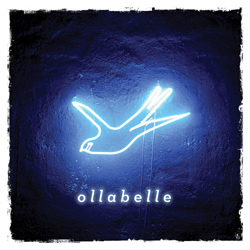A couple of weeks ago, hundreds of folk music fans traveled to Rhode Island for the Newport Folk Festival. Released in the wake of this festival, Ollabelle’s “Neon Blue Bird” is in a good position to take advantage of folksters new and old looking to further explore the genre.
Along with moments of pure folk, the band explores gospel and contemporary grooves in a set of original songs and covers. Luckily, this wide spread of musical ideas doesn’t undermine the strength of the album and render it unfocused. Instead, it keeps the band from sounding complacent in one musical style.
Everything on Ollabelle’s new release is done well. The instrumental work is exact, with acoustic and electric guitars playing off delicate pianos and banjos. The vocals are just as crisply delivered. In spite of Ollabelle’s impressive musical skills, however, the album at times feels too polite. Songs tend to blend together as simple, pleasant folk music. Fans looking for the fire of Mumford & Sons or the reckless abandon of Trampled by Turtles won’t find much of it in “Neon Blue Bird.”
Still, there are emotionally powerful songs on the album. “Be Your Woman” is a soulful and spunky song about a woman who refuses to be tied down: “Not going to marry no one / I’m goin’ free / Stick to that promise, boy / That you made me.” Along with a wonderfully gritty guitar riff, this song is one of the most enjoyable on “Neon Blue Bird.”
“Brotherly Love” also catches the listener off guard. The song sounds so modern and sultry that it could be played in a dark jazz club.
The best song on Ollabelle’s new work, however, is its take on a traditional English folk song in “Butcher Boy.” The members of the group clearly throw themselves into this heartbreaking tale of a young woman’s suicide. The music is flawlessly played and the vocals soar in what is the best singing on the album. When “Butcher Boy” ends, listeners will find themselves so captivated that they might want to give it a second listen, even if the subject matter cuts right to their hearts.
Another memorably quirky song is “When I Remember To Forget.” While moving on from a former love may not seem like a lighthearted affair, the song dances along with a breeziness that is both disarming and endearing.
“Neon Blue Bird” serves as a warm and comfortable album for longtime fans of the folk genre. And while gospel sounds occasionally add an interesting dimension to the tracks, the album does not bring many new ideas to folk music. Still, for fans of the genre simply looking for a well-executed folk album to play in the background, “Neon Blue Bird” will fit the bill nicely.
Email Bain at abain@media.ucla.edu.
